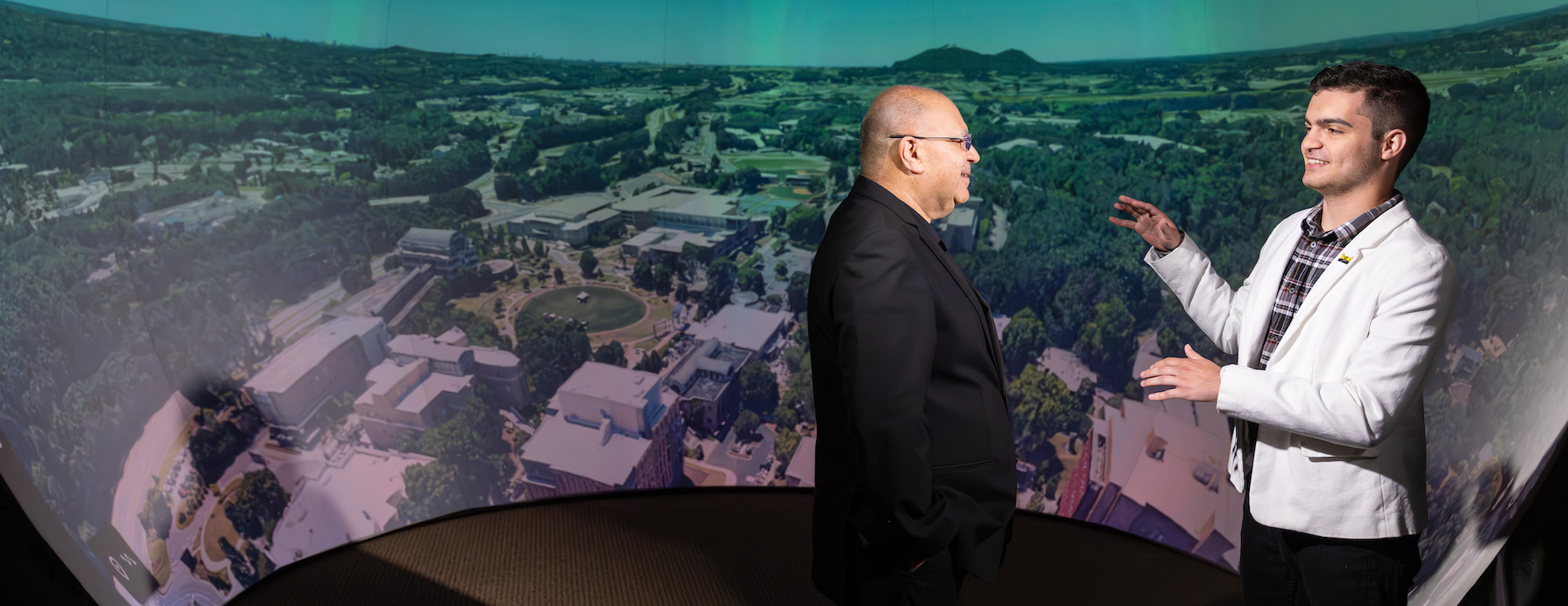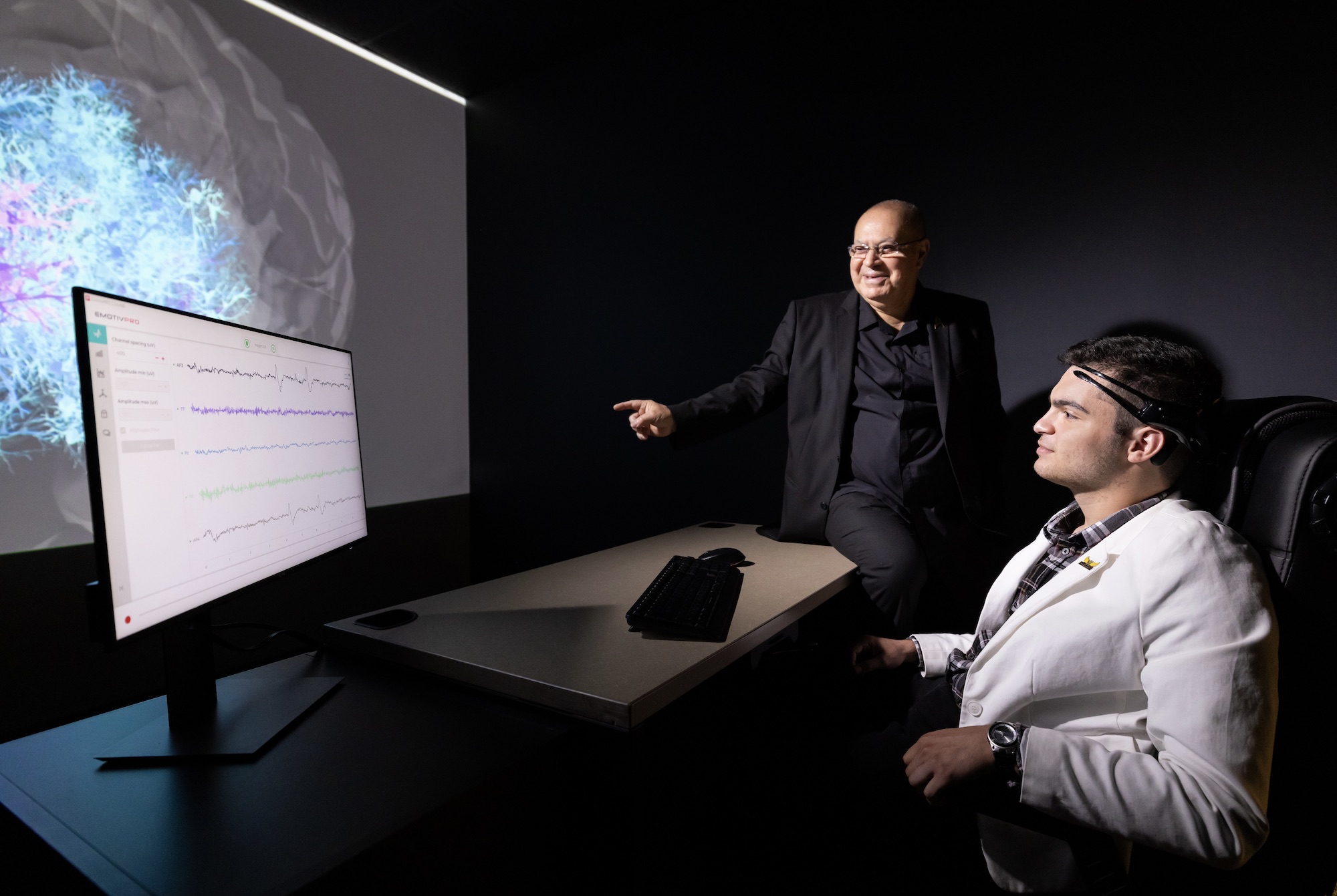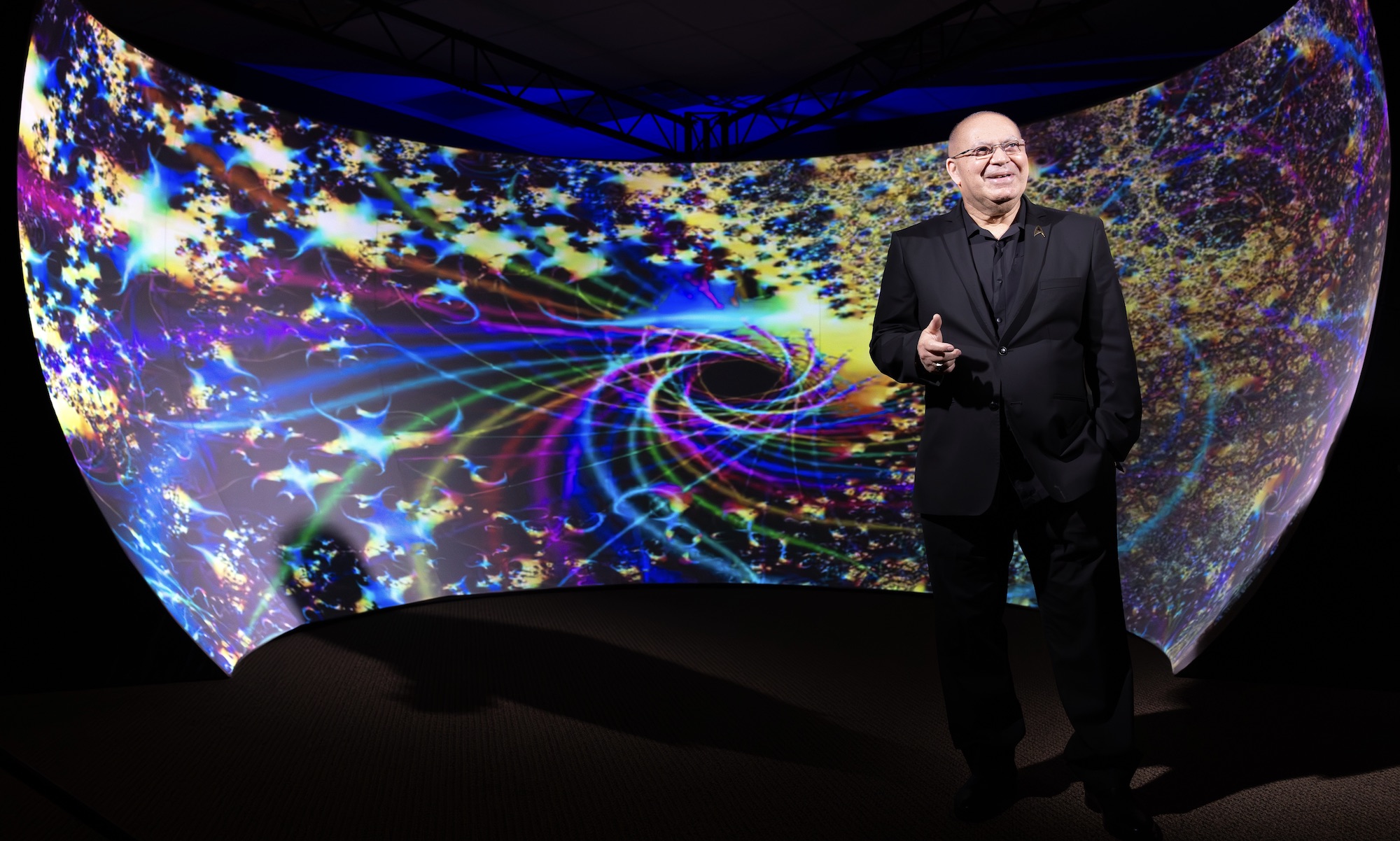

KENNESAW, Ga. | Sep 6, 2023
Tucked away in an unassuming room on Kennesaw State University’s campus is a device that can help researchers study black holes, better understand microscopic organisms and even learn to fly.
Max North, professor of information systems in the Coles College of Business, directs the Immersive Visualization Environments (IVE) lab with Cyril Okhio, assistant professor of electrical engineering from the Southern Polytechnic College of Engineering and Engineering Technology, Sarah North, senior lecturer of computer science in the College of Computing and Software Engineering, and David Garofalo, associate professor of physics from the College of Science and Mathematics. The IVE lab is one of the labs under the sponsorship of a multidisciplinary Immersive Visualization Environments Research Supercluster.

For researchers using the system, they can experience an expansive view of what they are studying and discuss with colleagues the details of what they observe. It’s a tool capable of supercharging collaborative scientific discovery, no matter the discipline.
“Immersive visualization cuts across boundaries. Computer science, engineering, mathematics, chemistry, physics, management, education, psychology, communication, arts, and history can all use immersive displays for a variety of purposes,” North said. “The limit is the human imagination.”
The lab offers users the ability to interact in virtual reality and augmented reality,
but it can also handle tasks including brainwave scanning, 3D modeling, distance learning
and more.

The goals of the IVE lab, North said, are to provide a research and training environment for students and faculty, establish research and training that reaches across disciplines, collaborate with government and industry and establish a nationally and internationally recognized research group.
The lab already works with what its leaders call a “research cluster,” a group of Kennesaw State researchers from various disciplines who have used the lab’s massive, curved screen for virtual reality, augmented reality and other research or training needs.
The screen has been used to research distracted driving, to train pilots in simulated
flight scenarios and to allow construction managers to cast their building plans onto
projected images of their proposed site for more accurate planning. North, who has
experience treating fear of heights with virtual reality therapy, said the facility
can be useful for psychologists.
Also important are the implications working with the IVE lab’s technology could have for students, said Okhio, the IVE lab’s co-director.
“Remote engineering and virtual instrumentation are very good future trends in STEM,” Okhio said. “The IVE lab is a place where students gain experience and learn applications of remote engineering and virtual instrumentation.”
Elliot Larez, a junior and member of the KSU Journey Honors College, is a student researcher who has immersed himself in what the lab has to offer. The
computer science major has worked at the lab for two semesters, setting up software systems, running
demonstrations and introducing the lab to other students who may want to use its devices
for their academic projects.
Beyond the fun of being included in faculty research projects and exploring the newest tools and software available, Larez said working at the IVE lab has landed him opportunities outside his regular studies. He recently completed an internship with Immersive Display Solutions, the company that manufactured KSU’s immersive systems.

“I worked developing an application to manage display systems like ours. Working at the IVE gave me the ability to learn basic concepts, including image calibration and video playing that prepared me for the work,” Larez said. “I believe the internship gave a lot of extra value to my studies at KSU.”
North said the lab provides the latest visualization tools and continues to evolve
as research and labor demands do. And the best part, he said, is that it is available
to all students and faculty who need it.
“We have been fortunate to receive funding for a large-scale project like this — to establish this type of visualization and simulation,” North said. “This lab increases the winning potential of future grant proposals by including the research capabilities of the immersive visualization and simulation tools available to researchers and students at Kennesaw State.”
North said the Immersive Visualization Environments Research Supercluster is sustained
by the support of the Information Systems & Security Department and its chair, Khawaja
Saeed as well as the Coles College of Business and dean Robin Cheramie.
Initial funding for the IVE equipment was provided by a grant from the Department
of Defense Army Research Office and later by a grant from the National Security Agency,
along with continued support from KSU.
– By Thomas Hartwell
Photos by Matt Yung
# # #
A leader in innovative teaching and learning, Kennesaw State University offers undergraduate, graduate, and doctoral degrees to its more than 51,000 students. Kennesaw State is a member of the University System of Georgia with 11 academic colleges. The university's vibrant campus culture, diverse population, strong global ties, and entrepreneurial spirit draw students from throughout the country and the world. Kennesaw State is a Carnegie-designated doctoral research institution (R2), placing it among an elite group of only 8 percent of U.S. colleges and universities with an R1 or R2 status. For more information, visit kennesaw.edu.